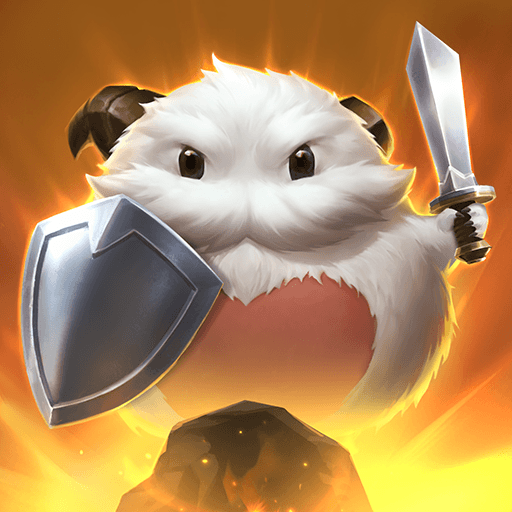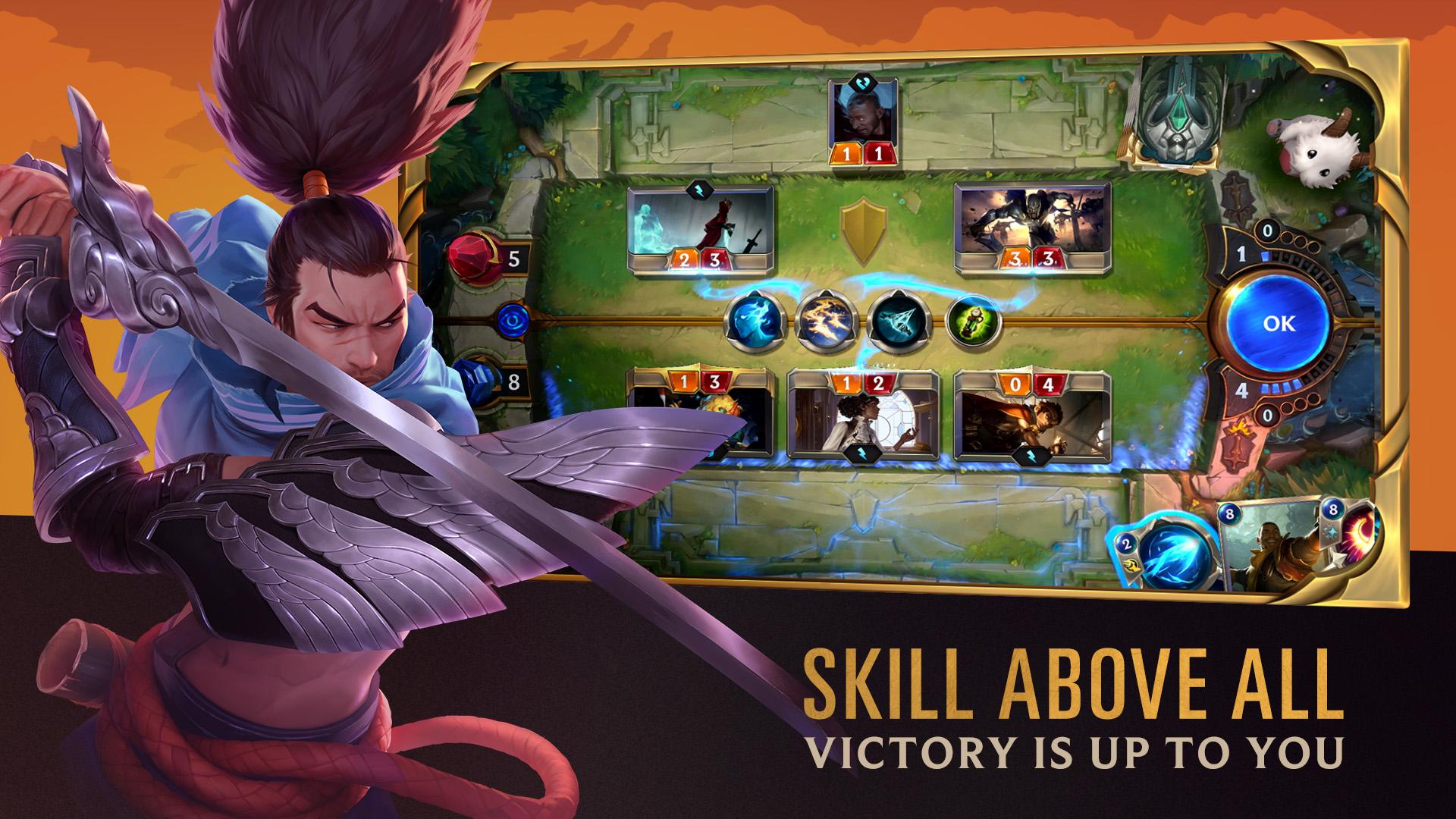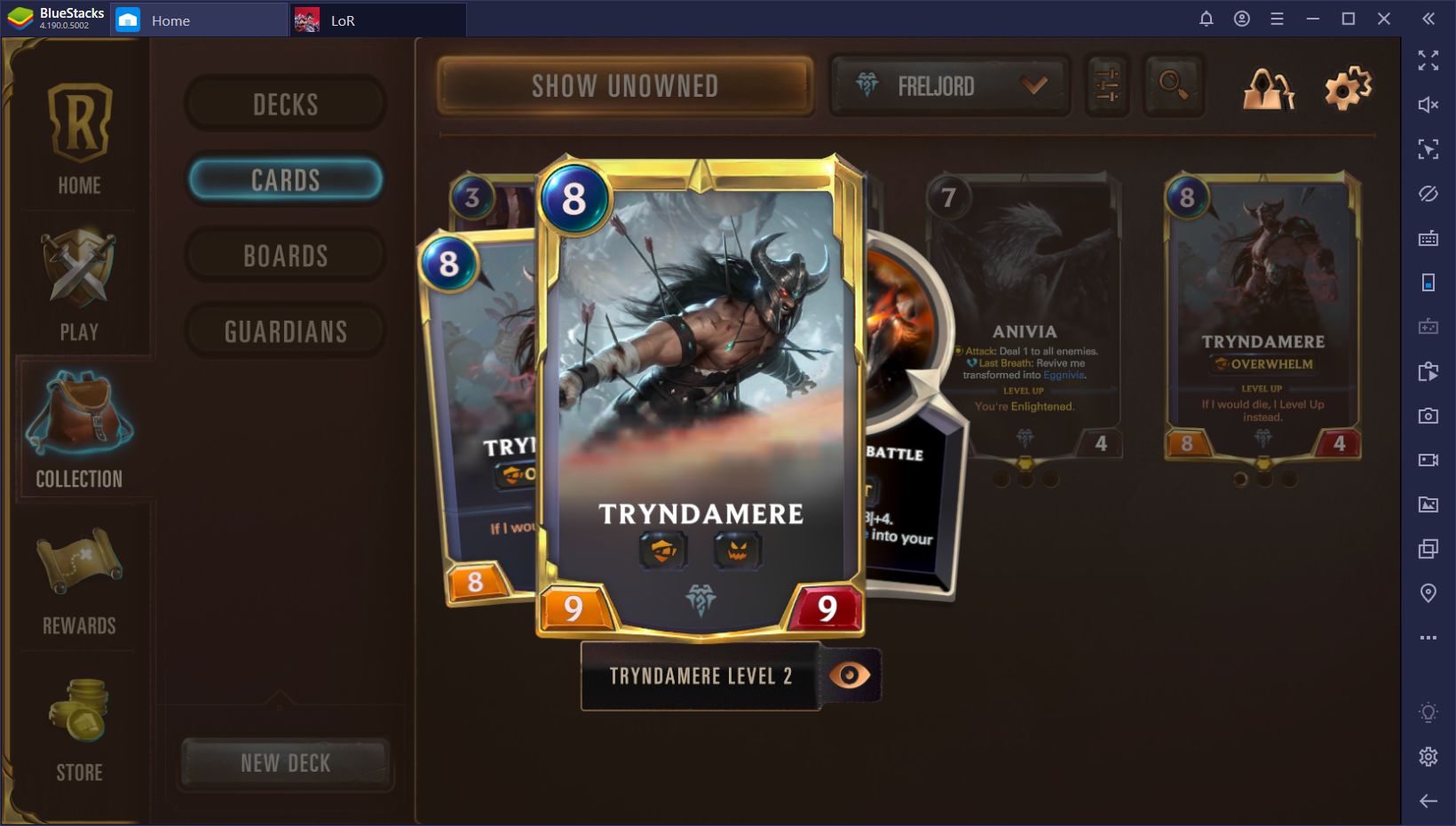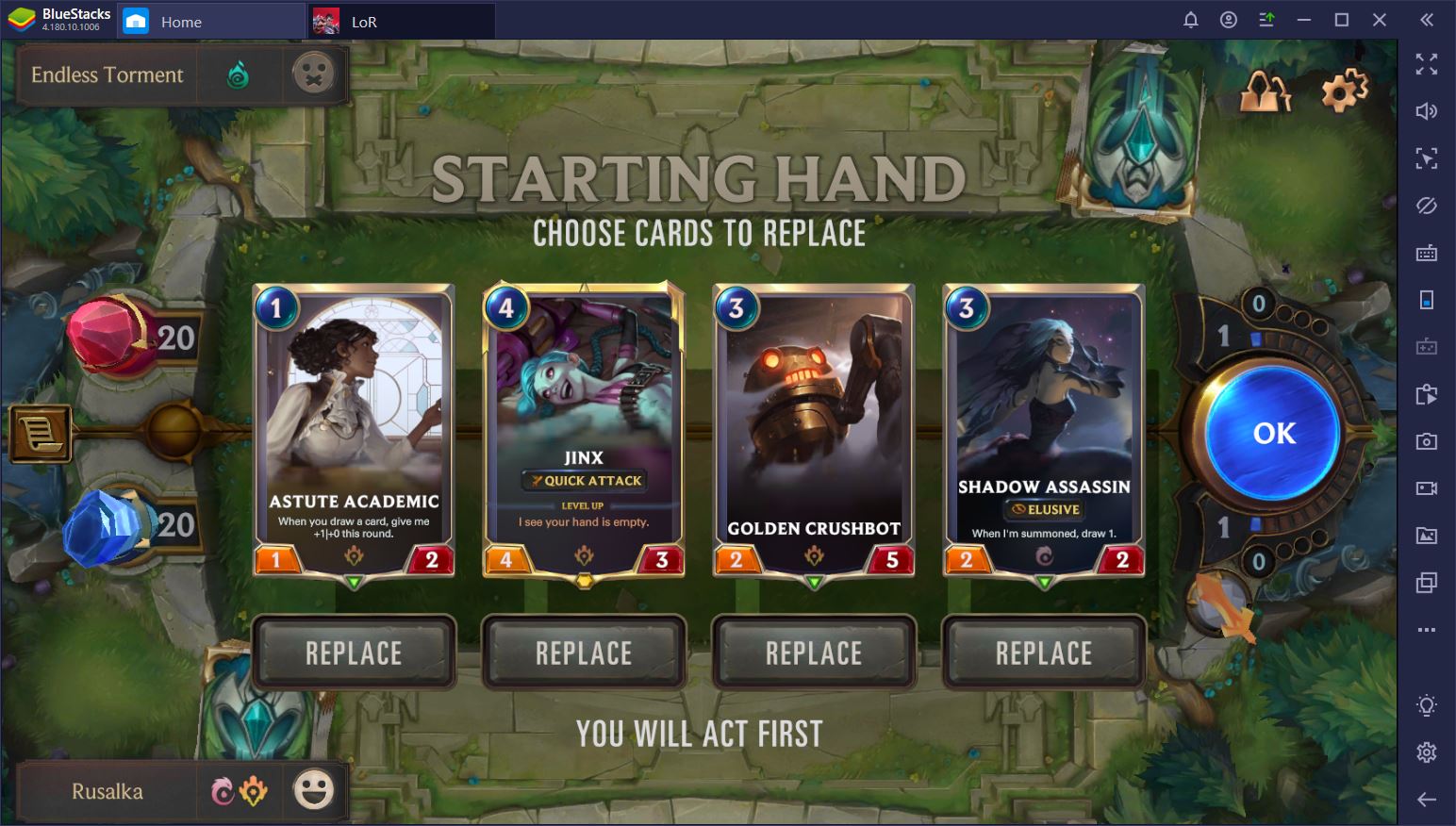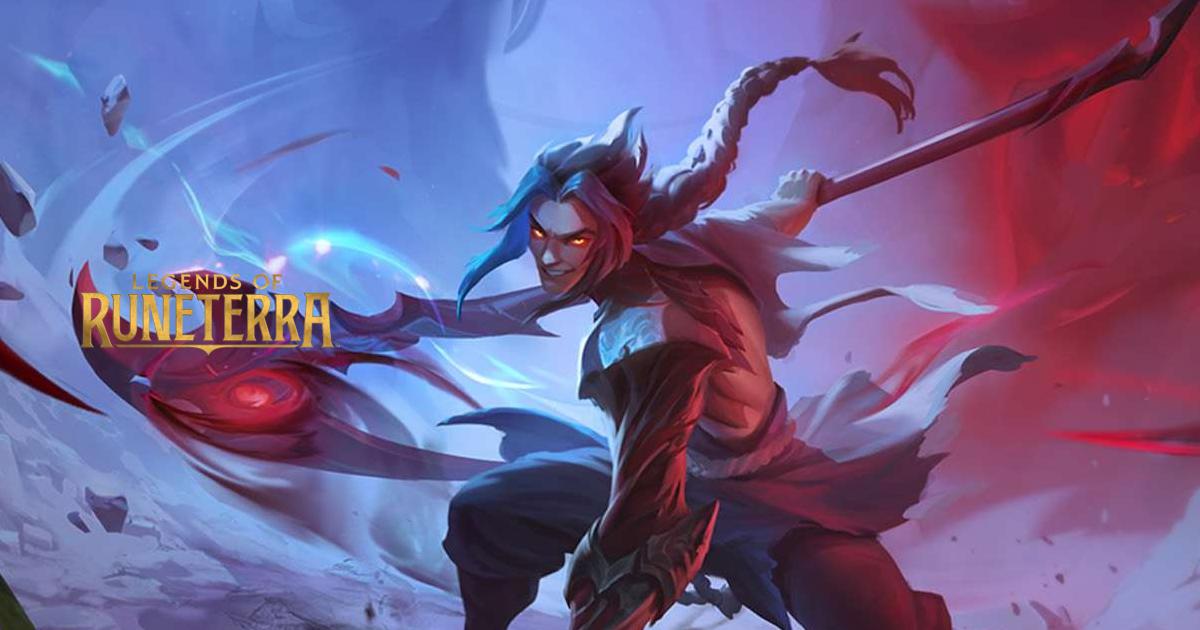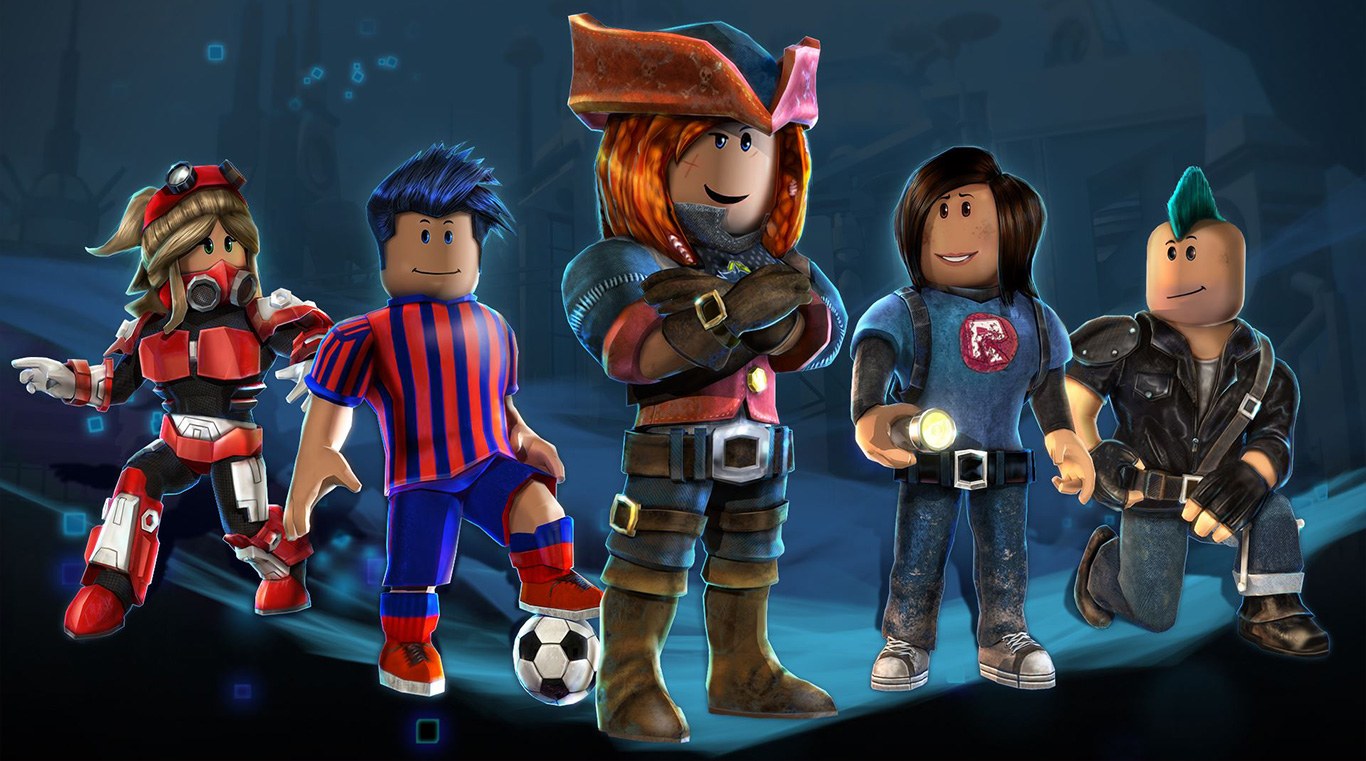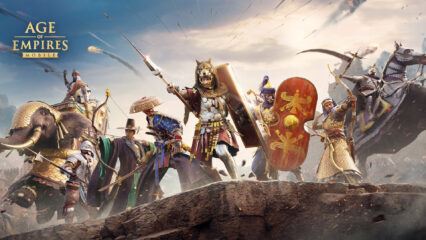Legends of Runeterra on PC: Guide to the Most Common Deck Typologies
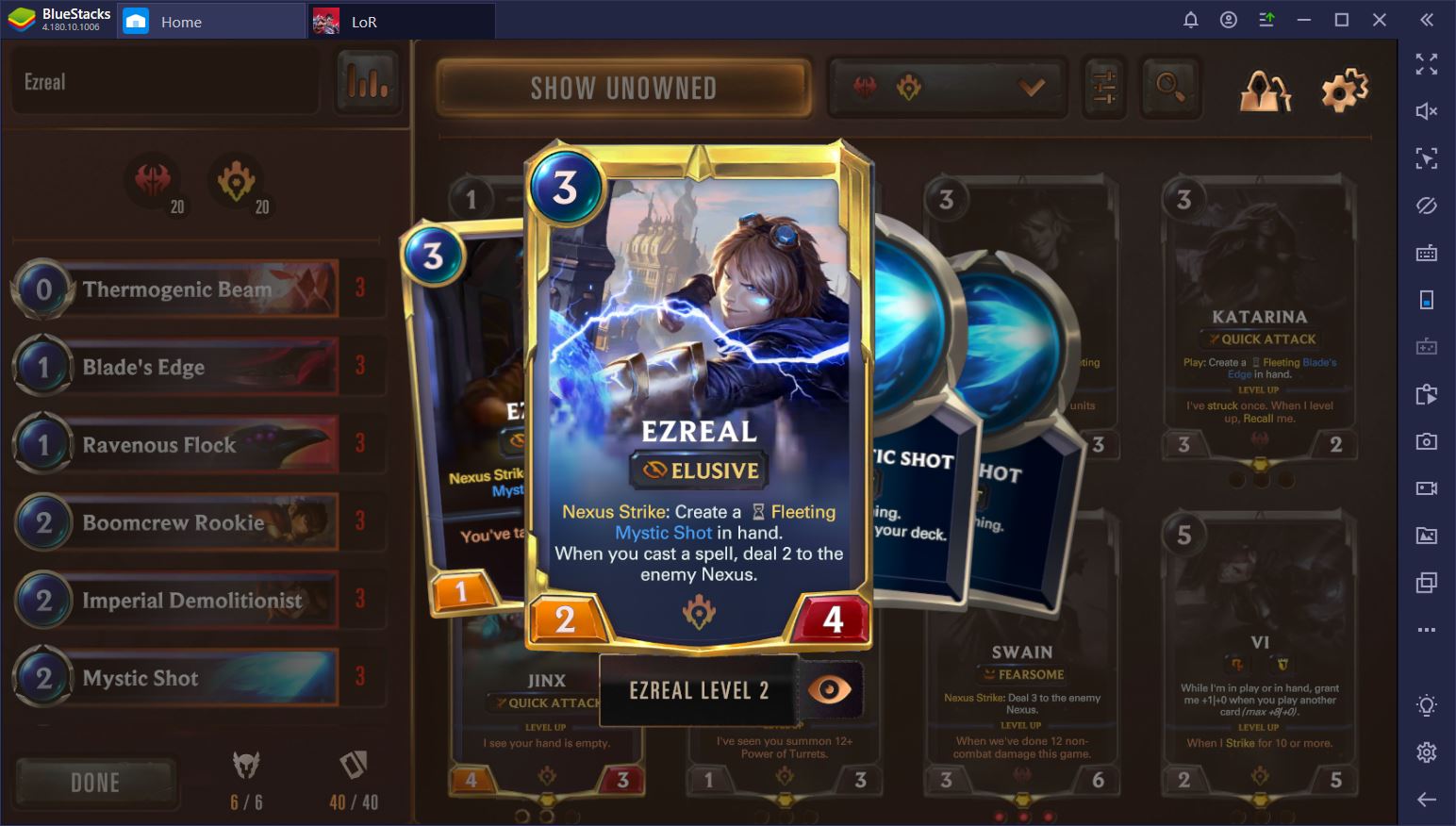
In a previous guide, we’ve looked at some of the most popular deck combos in Legends of Runeterra following the Rising Tides expansion. But as with all card games out there, LoR is bound to change as the meta evolves and new decks become crowd favorites. As such, we wanted to give you a guide that you can use to understand and rate future decks of all types according to your own preferences.
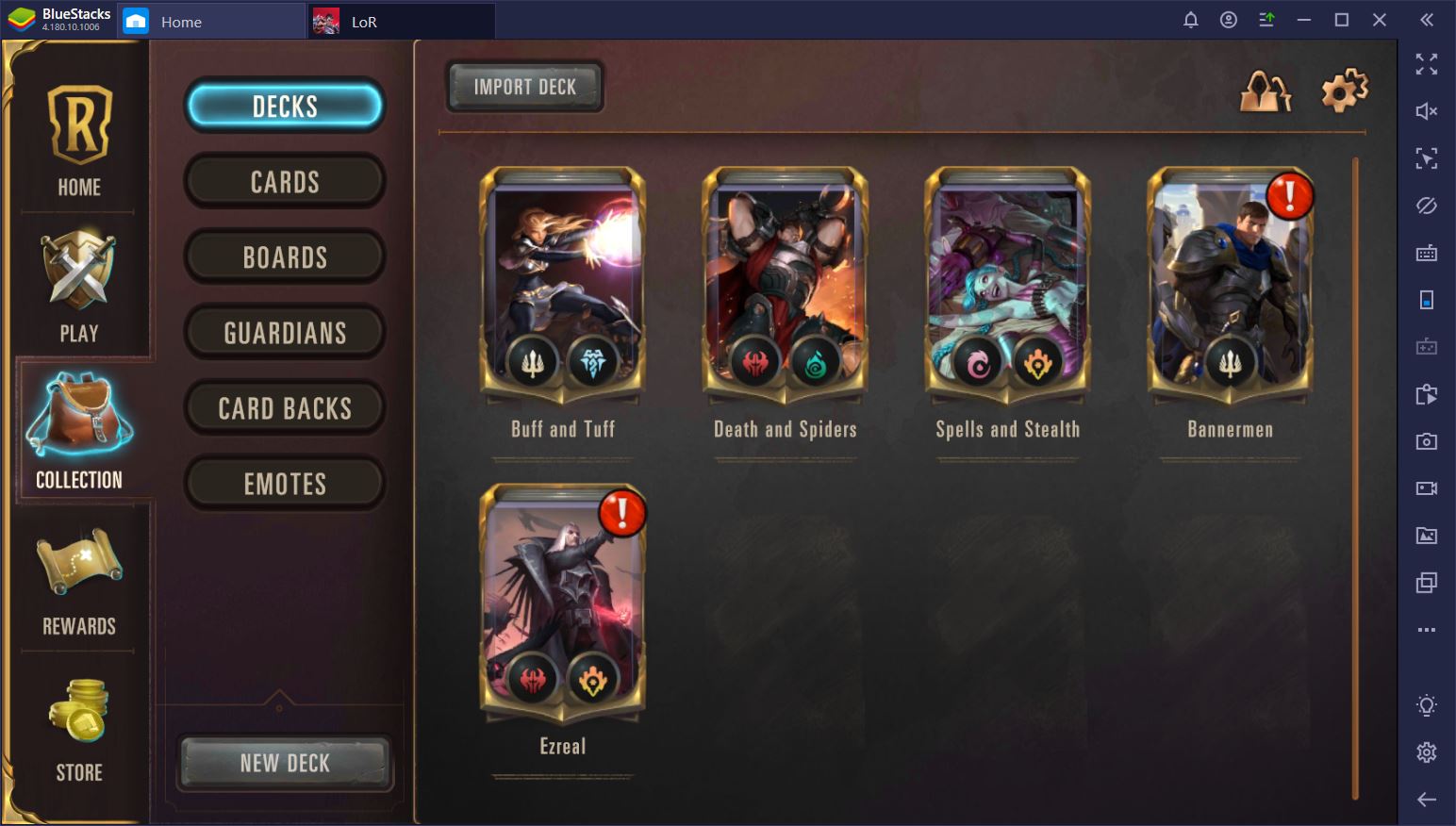
You can use the information below to make your own decks, but also in order to increase your win rate with decks made by other players. How? By understanding the archetype (and, as a result, the win conditions) of the combo you are playing. Let’s take a closer look!
1. Aggro Decks: Spiders
Aggro decks usually contain a lot of cheap unit cards that can be played very early in the game. While playing an Aggro deck, your goal is to get as many units on the board as possible in order to overwhelm your opponent. Quite often, you won’t even bother to block your opponent’s attacks because your ultimate aim is to kill them as quickly as possible.
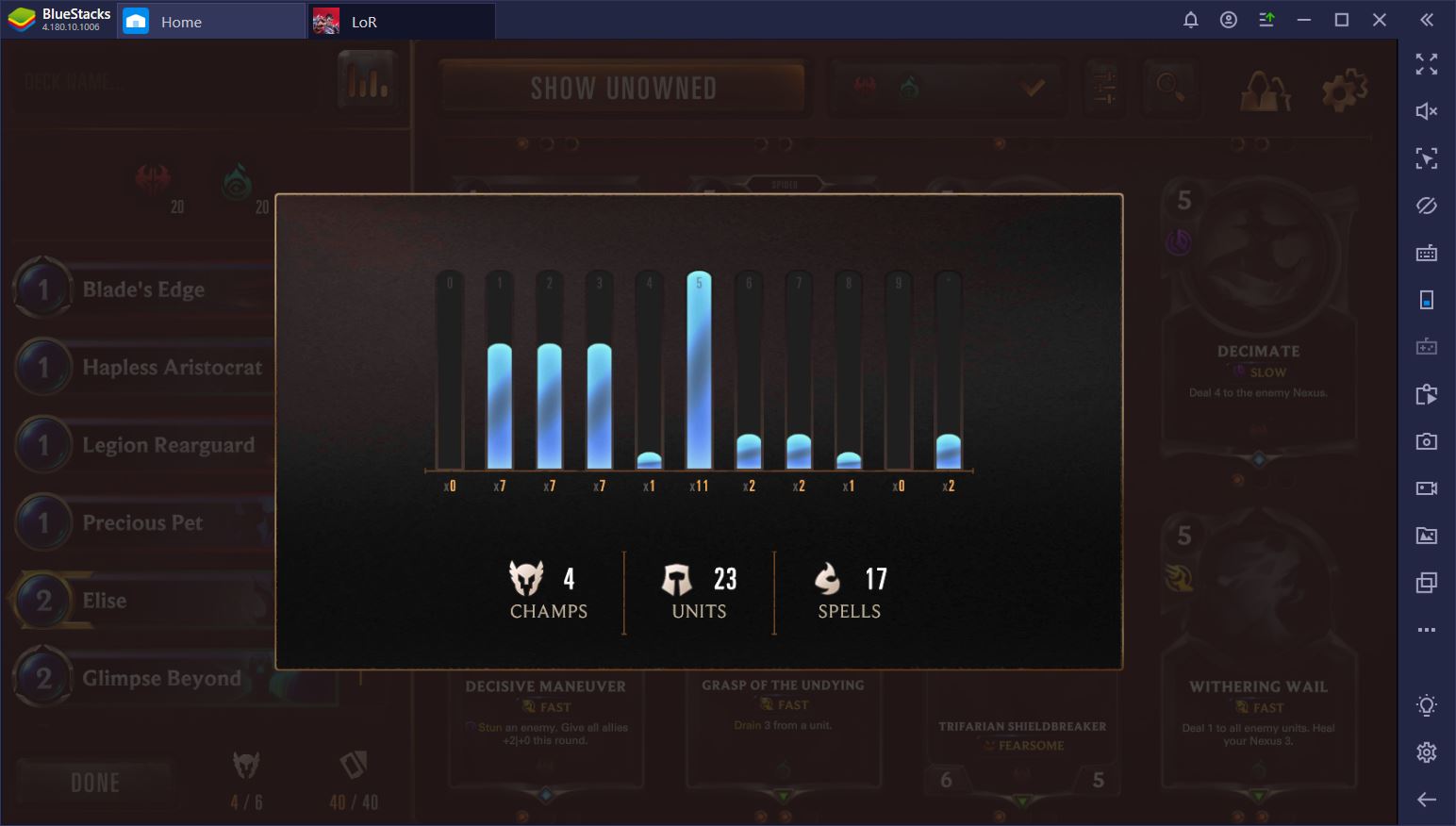
The advantage of an Aggro deck is that when you draw the right cards to begin with, you’re nearly unstoppable. Games end in a heartbeat and you can move on to your next victory before your opponent realizes what hit them.
There are disadvantages, though. An Aggro deck is entirely dependent on finishing each match early on. If you don’t draw the cards you need to apply early pressure to your opponent or your opponent manages to drag on the game past turn 10, you are very likely to lose, especially if you’re playing against a mid-range or control deck.
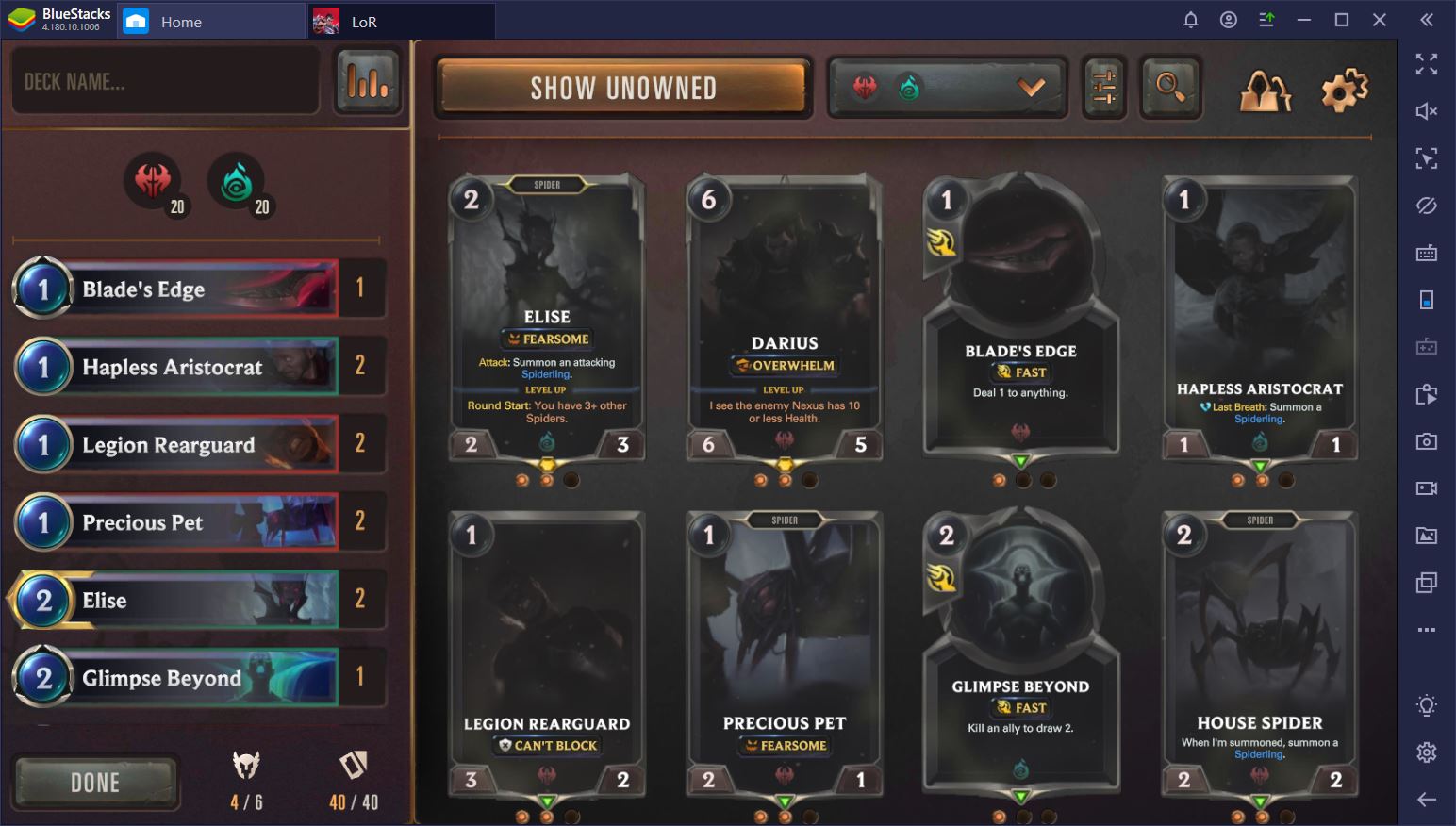
That being said, one deck that has maintained its popularity since LoR was first released is Spiders Aggro. Although risky, this deck puts at your disposal the tools you need to end a match before or shortly after turn 10.
With a typical Spiders Aggro deck, your goal is to swarm the board with spiderlings as quickly as possible. If you manage to draw and play House Spider, even better. Instead of wasting your spiders by blocking enemy units or by ordering attacks that you know will get blocked in an unfavorable exchange, you want to put together an army of spiders that can then buff Crowd Favorite on turns 4 or 5.
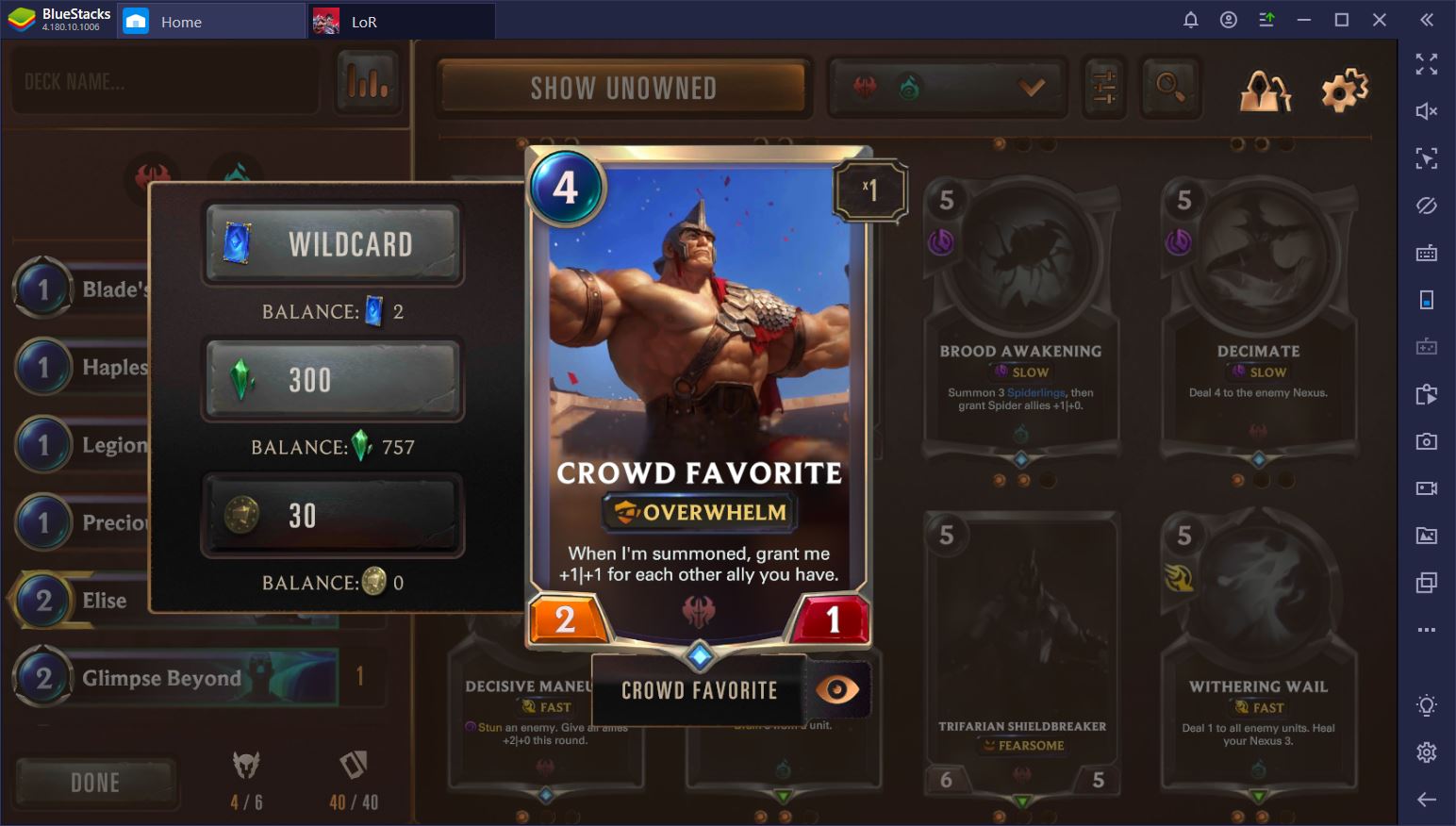
This is actually one of your most important win conditions because it puts an immense amount of pressure on your opponent. Even if Crowd Favorite is somehow taken care of, you can always use Draven to seal the deal.
2. Mid-Range Decks: Bannermen
Mid-range decks are similar to aggro decks in the sense that they, too, want to generate a wide board that the opponent cannot block. The way you reach this goal, however, is different when you’re playing a mid-range deck.
Play Legends of Runeterra on PC
As the name suggests, your mana curve favors cards with a mid-range cost, which means that you won’t be able to apply as much pressure during the early game. Instead, your goal is to play cost-effective cards or, in other words, to use up all of your mana each turn in order to summon increasingly powerful units.
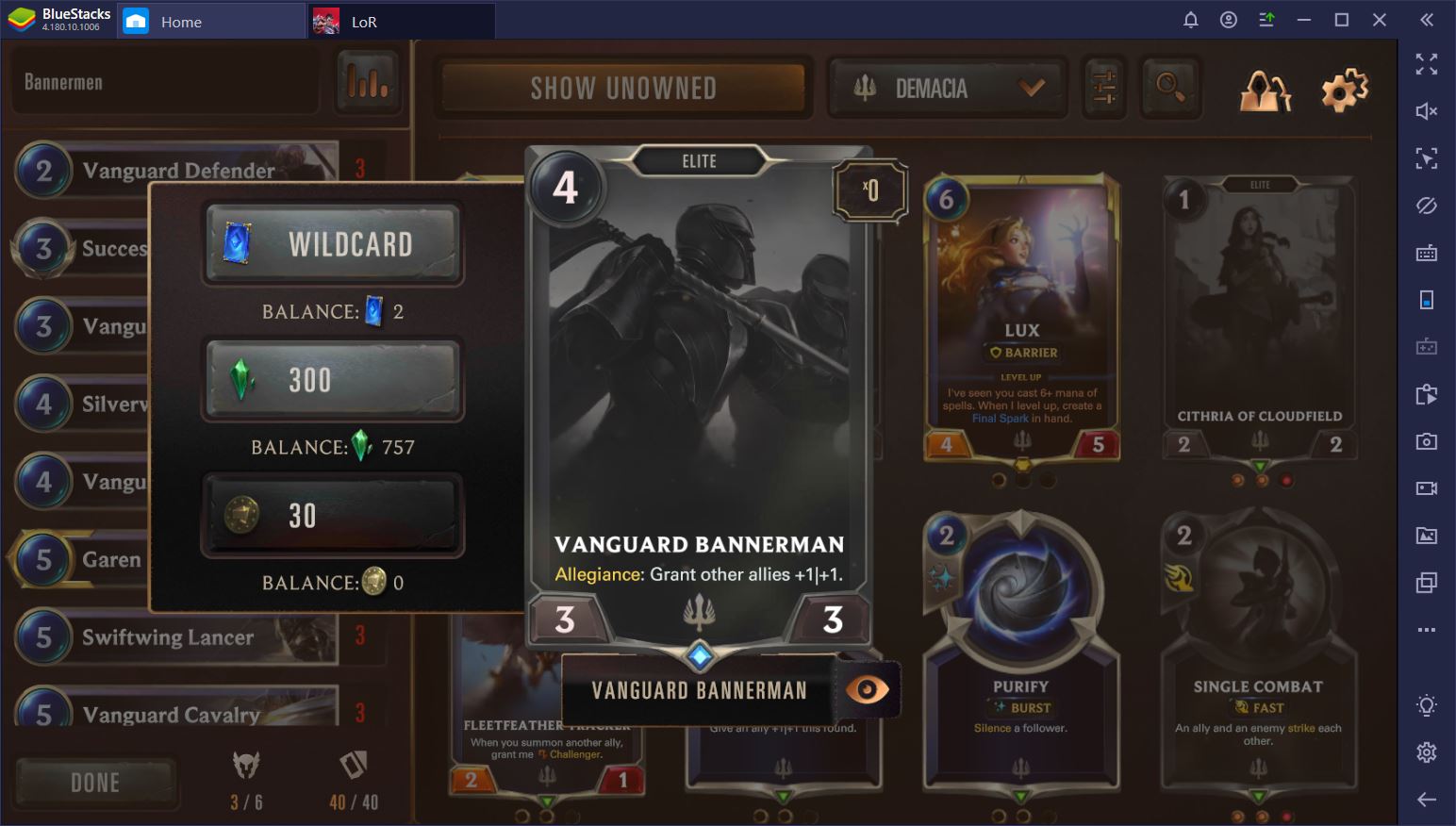
In addition, you want to focus on board control for the first few turns of each match. Rather than attacking your opponent’s face, save your units to block incoming charges in an advantageous manner. If possible, choose your blocking units in such a manner so as to ensure that they survive for at least another turn. As the game progresses, this allows you to build a wider board than your opponent, which is your ultimate goal.
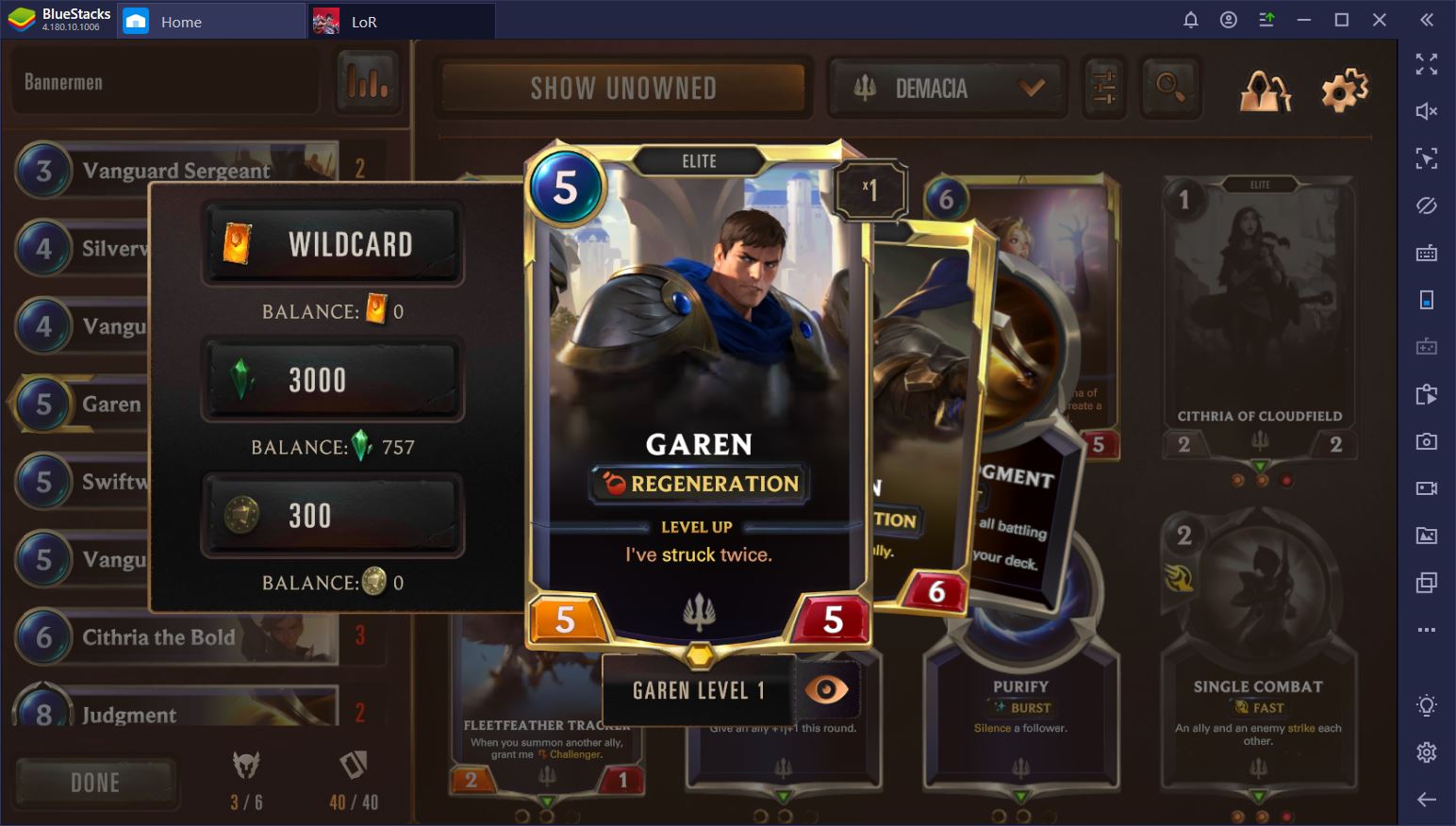
During the midgame is when this deck can work its magic. This is when you can summon some of your strongest units and, if you’ve done a good job controlling the board thus far, then you should have enough to break through your opponent’s remaining defenses and secure a victory.
One of the most popular mid-range decks in LoR is the Bannermen combo that uses primarily Demacian cards and ensures the survival of allied units through Vanguard Bannerman’s buff and Barrier spells. Cithria the Bold, Garen, and any buffed units that survive until the late-game are usually enough to defeat an already weakened opponent.
3. Control Decks: Ezreal
Control decks are the slowest and the most difficult to play, but they can also be super rewarding if managed properly. In fact, you have to be extremely unlucky to lose with one of these decks, provided that you know what you’re doing. Should you make it to the late-game – which is, generally speaking, your win condition – no other deck archetype can stand between you and the victory.
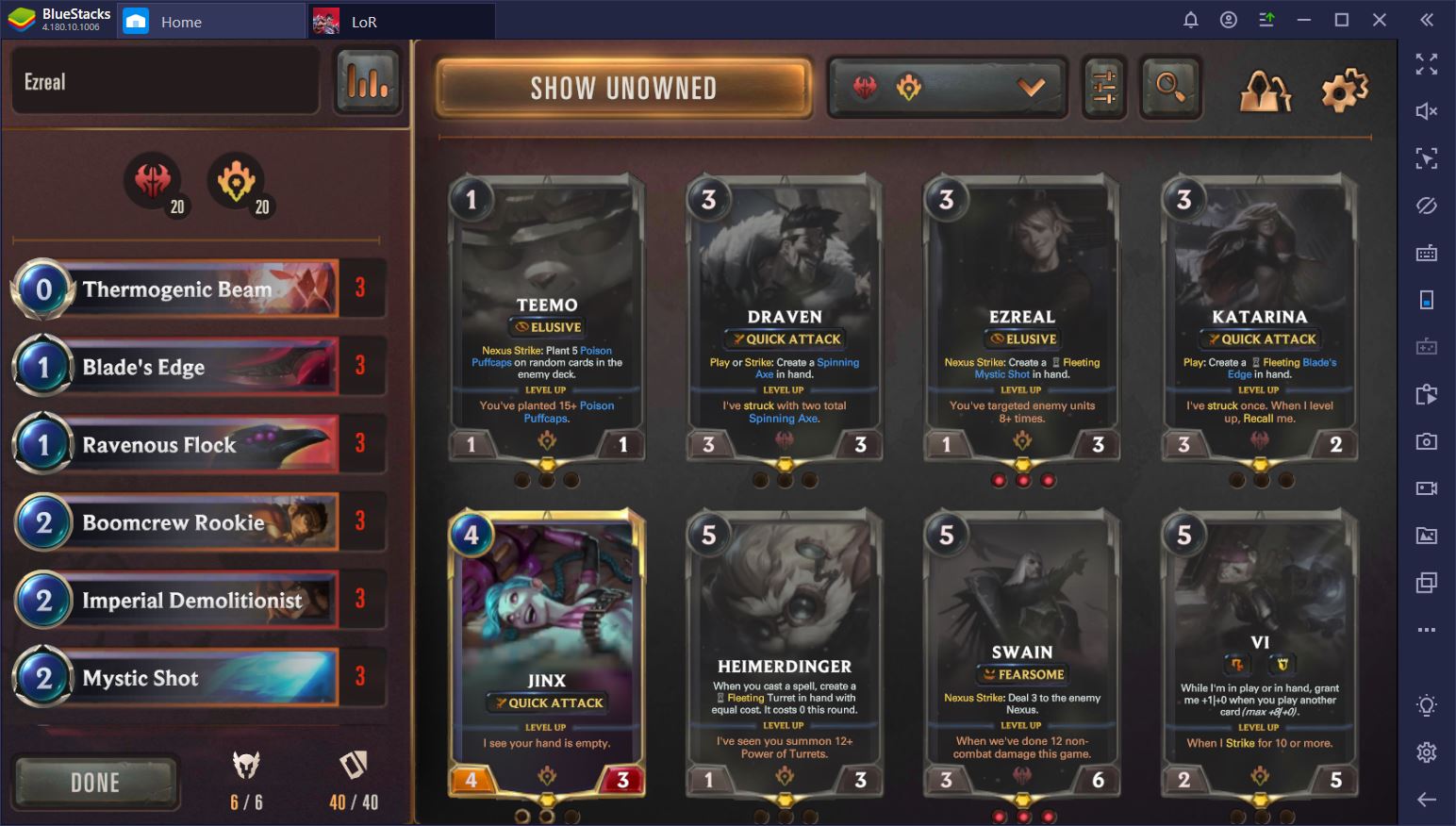
The obvious advantage with a control deck is that it ultimately beats all other combos. The disadvantage is that it can be difficult to survive during the first few turns of a match, especially if you’re up against an aggro deck. It doesn’t matter how strong your plan is if you never get the chance to execute it. As such, you have to have a clear picture in mind regarding how much of your health you can sacrifice, which units are dispensable, what cards you need to survive early on, and when it’s time to execute an emergency plan. That’s one tall order!
Take the Ezreal control deck, for example. Once Ezreal is upgraded and played, you can quickly destroy your opponent’s Nexus with the champion’s ability. To get to that point, though, you have to draw out the game as much as possible. Spells and skills that target the opponent’s units are a great way to achieve this and to bring Ezreal closer to an upgrade in the process.

You want to use cards like Statikk Shock and Mystic Shot to cut down most threats, while Harsh Winds and Icevale Archer can serve a similar purpose. If you don’t find any of the removal cards you need early on, though, it can be particularly difficult to make it through to turn 10, especially if you’re up against an aggro deck.
No matter what deck you play, remember that it’s equally important to know your opponent’s cards and champions as it is to know your own. This might feel intimidating at first, but trust us: after a couple of weeks of playing the game, you’ll know exactly what most of your opponents have in mind before they take their turns.

